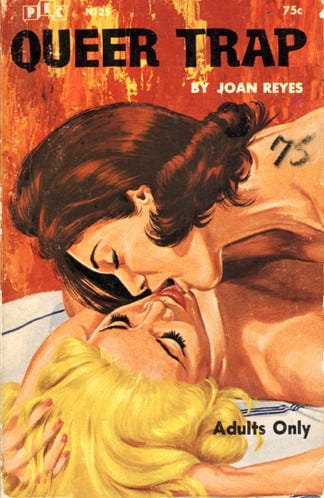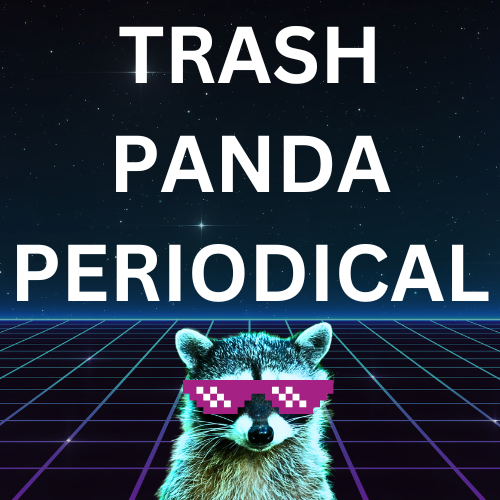“Lesbian” is a Noun. Sorry not sorry, Merryn.

“You’ll never guess what they’re saying on Twitter”, my girlfriend said to me as we drove into the parking lot of Michael’s to pick up edible silver spray paint for our apocalypse themed wedding. “It’s… the Discourse again.”
I sighed heavily and rolled my eyes. “What is it this time?”
“The editor-in-chief of Curve is saying that all women can identify as lesbians, even if they’re straight, because lesbian is a verb.”
I just laughed. Oh, 2016, always more surprises for the literal trash fire you are, huh? White supremacists are “respected leaders”, convicted rapists are “Olympic hopefuls”, and straight women are now, apparently, lesbians.
What a world.
Here’s the thing. It feels remarkably rich to hear Merryn Johns (that aforementioned editor-in-chief) say that she feels “lesbian” is a verb for all women who desire other women when Curve magazine is more likely to feature a straight actress playing a lesbian than a trans woman who IS a lesbian. Having witnessed my girlfriend and other trans women be discriminated against in lesbian spaces, never mind bisexual women and queer women… I think Merryn is being a little willfully naive at best.
Or perhaps not. The rest of her piece scoffs at the idea of erasure or invisibility, along with other “identity politics” she believes are creating “the schisms between us that define us more than our similarities”. She wrings her hands bemoaning the ways in which more marginalized members of queer community (which ends up meaning bisexuals, trans women, POC, people with disabilities, queer folks, etc etc etc) end up “emphasizing victimhood”. Cause, y’know, in these days of a Republican government and a presidential manbaby with a grudge against women, we definitely shouldn’t make white middle class cis lesbians uncomfortable with such unrefined discussions as intersectional oppression. Heaven forbid!
Straight up (so to speak) — I identify as queer. I identify as queer because it’s been a space more welcoming to my dating people across the gender spectrum, and it often feels politicized in a way that I strongly identify with as part of my sexual, romantic being. I don’t identify as a lesbian, because words *mean* things, and I am not solely attracted to women. To identify as a lesbian would mean, to me, disrespecting a history of homosexual women who were correctively raped, harassed, abused, murdered, and more because of their identity. It would also mean, to me, right now, aligning with some communities of women who have been transmisogynist to people I care deeply for. I do not want to be lumped in with either in some quest for “solidarity”. It’s not worth the price of admission.
I guess the thing I don’t understand is… if you feel like solidarity is lacking so badly, and representation is so heinous, why not muscle in on “gay”? Why not insist that gay spaces stop centering one specific type of masculine and instead open to lesbians, queers, bisexuals, trans folks, and sure, why not, straight folks who dabble? Never mind all the other intersectional gay identities that exist but are so often ignored in depictions of what “gay” looks like— people with disabilities, POC, poor folks, immigrants, and so on.
Merryn doesn’t make this argument because I believe she, on some level, understands that it’s important for “lesbian” to focus on some definition of “women” in particular. If she continued down that line of reasoning, might also lend some light as to why many women consider “lesbian” a noun that doesn’t fit them. You cannot find solidarity with people who tell you that your invisibility doesn’t matter, that you should put your feeling of erasure aside for the “greater good”… which almost always benefits the most privileged on the backs of the less privileged.
I think it’s great that Curve is going to stick with a tagline that it’s for lesbians. Lesbians do need media, and space, and visibility. But “lesbian” is not a verb, and you do not get to force it on people who don’t identify as such. If you want to stick with the L word, you need to understand the full weight of that decision, positive and negative. And if you want to demonstrate inclusiveness, maybe focus more page space to trans lesbians. That’s probably the most worthwhile thing you can do to start healing some of the wounds you claim to feel so torn up about. I’ll be waiting.

Comments ()